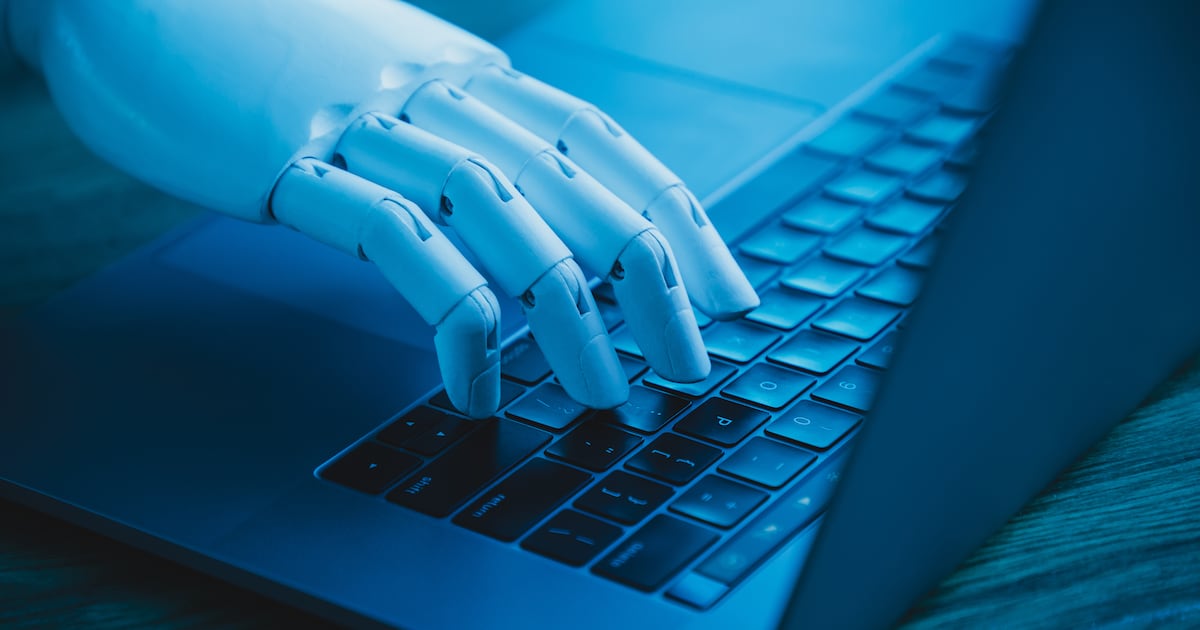
The rise of technologies such as artificial intelligence (AI) has caused much anxiety around its potential impact on the global workforce. This is not a new fear and there are several examples in history that point to similar concerns.
In the early 19th century, for example, during the time of mechanisation of weaving looms, textile workers strongly opposed the change as they believed that it would eliminate their livelihood. Similarly, the invention of the printing press initially caused apprehension among book keepers who feared being replaced.
However, history tells a different story. While new technologies did alter and take certain jobs, they ultimately created new opportunities and whole industries that were unimaginable at the time.
Similarly, in the current context, AI creates new job opportunities in AI development, data analysis, machine learning engineering and AI ethics.
The truth is that many of the jobs that are under threat lack creativity and innovation. Instead of lamenting their disappearance, we should view the automation of these tasks as a chance to redefine work as well as the education system that prepares us for this new world. AI can augment human capabilities, leading to the creation of new roles that require a blend of human creativity and AI assistance.
For perhaps understandable reasons, our education system has been geared towards producing successive generations of people trained to excel in specific, narrow fields and repetitive skills, often at the expense of their inherent talent and critical thinking skills.
Education systems have been geared towards producing people trained to excel in specific, narrow fields and repetitive skills, often at the expense of their inherent talent and critical thinking skills
This focus on economic value rather than personal growth or societal benefit must shift. Our task now is to embrace technology and find new ways to equip students with the tools to be more creative and innovative. We must cultivate a generation of passionate workers who can think differently, collaborate and translate ideas into solutions.
Fostering skills such as divergent thinking – the ability to generate a wide range of ideas – and critical thinking – the ability to interpret, evaluate, and analyse facts and information that is available – allows for the selection of the most promising solutions. Collaborative problem-solving should be central to real-world challenges that require teamwork and diverse perspectives. Fostering inclusivity is also crucial as it ensures diverse perspectives, which can lead to breakthrough ideas.
In addition to mastering technical skills, students must grasp the importance of networking, forging connections and navigating an increasingly complex job market. The ability to maintain focus and to persevere through challenges is also vital in the pursuit of any creative endeavour.
Finally, ethics must be central to our teaching and thinking. As AI becomes increasingly integrated into education and the workforce, it’s crucial to ensure that ethical considerations are prioritised and human oversight is maintained. This involves addressing issues such as algorithmic bias, data privacy and the ethical implications of AI-driven decision-making. Our role is not just about ensuring that people can remain economically productive but to inspire them to develop ideas that can have a broad positive impact across societies.
This task is vital because the problems we face as a society are manifold – from the environment to social and economic inequality, health care, and, potentially, unequal access to future technologies.
It is all too easy to imagine a future where underserved populations do not have access to the innovations that power richer nations forward. This cannot be allowed. As the Covid-19 pandemic revealed, and as climate change will continue to remind us, we are all in the same boat. Our challenges are global, and we need locally sourced solutions from people who understand the nature of these problems and how best to fix them.
More from The National
The experience of running the NYU Abu Dhabi Hackathon for Social Good for the past 12 years has shown me the value of inspiring creativity, passion and co-operation among young people. Top students from around the world convene in the UAE and are mentored by leading experts on utilising quantum computing to advance the UN’s social development goals.
The hard skills they learn during this competition are important. But equally valuable are the soft skills: co-operation, teamwork, and inspiring each other to approach problems in new ways. The students also build a network of global contacts that is of huge value as they go on to start companies and create products and solutions that apply to different parts of the world.
The results of this competition have been outstanding. Last year’s hackathon winners presented their idea – a quantum computing-powered tool to predict and avoid citywide power cuts – to The Geneva Science and Diplomacy Anticipator summit in Switzerland. We aim to implement the NYUAD Hackathon framework to underserved communities across the world, who can then disseminate this knowledge in their own countries.
By finding more such ways to inspire creative thinking in education, we can unlock a future where human ingenuity thrives alongside technology. The future isn’t dominated by competition between humans and machines; it is about collaboration and putting people first.
Published: May 07, 2024, 7:00 AM
